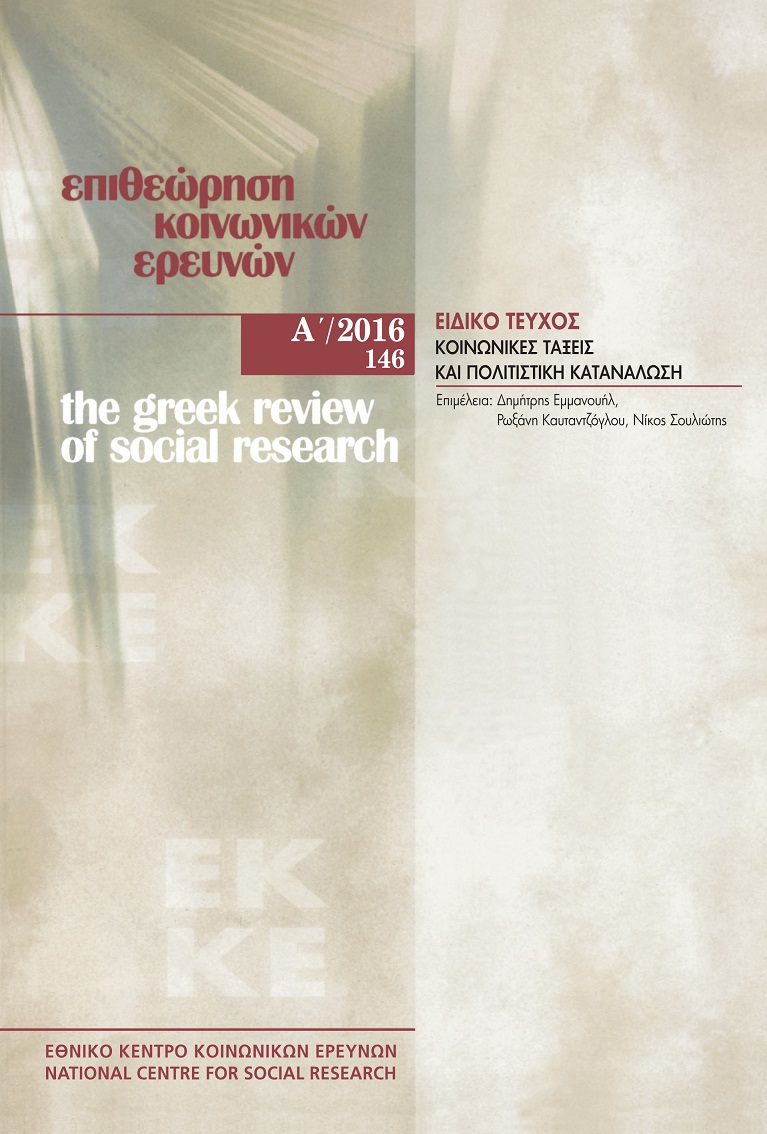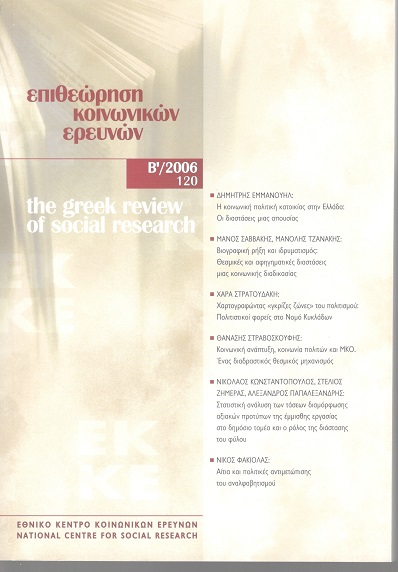Patterns of cultural consumption and social stratification in Athens: some general remarks on the Greek case

Abstract
The paper reviews the results of a survey of cultural consumption in public venues in Athens in 2013 in the fields of cinema, music and the performing arts - dance and theater. It attempts a synthesis of the findings across all three fields with a view of evaluating the validity of alternative schemata relating cultural consumption to social stratification such as Bourdieu's homology and Peterson's cultural omnivore thesis. While the omnivore phenomenon is limited in this particular case, Bourdieu's hierarchical schema also applies partially in that, alongside adherents of "highbrow" culture substantial segments of upper strata adopt an antithetical "popular" culture. The paper examines this "schism" in the light of a number of views on the nature of "popular" culture and on Greek developments in consumption and cultural politics.
Article Details
- How to Cite
-
Εμμανουήλ Δ. (2016). Patterns of cultural consumption and social stratification in Athens: some general remarks on the Greek case. The Greek Review of Social Research, 146, 189–228. https://doi.org/10.12681/grsr.10646
- Section
- Articles

This work is licensed under a Creative Commons Attribution-NonCommercial 4.0 International License.
Authors who publish with this journal agree to the following terms:
- Authors retain copyright and grant the journal right of first publication with the work simultaneously licensed under a Creative Commons Attribution Non-Commercial License that allows others to share the work with an acknowledgement of the work's authorship and initial publication in this journal.
- Authors are able to enter into separate, additional contractual arrangements for the non-exclusive distribution of the journal's published version of the work (e.g. post it to an institutional repository or publish it in a book), with an acknowledgement of its initial publication in this journal.
- Authors are permitted and encouraged to post their work online (preferably in institutional repositories or on their website) prior to and during the submission process, as it can lead to productive exchanges, as well as earlier and greater citation of published work (See The Effect of Open Access).



